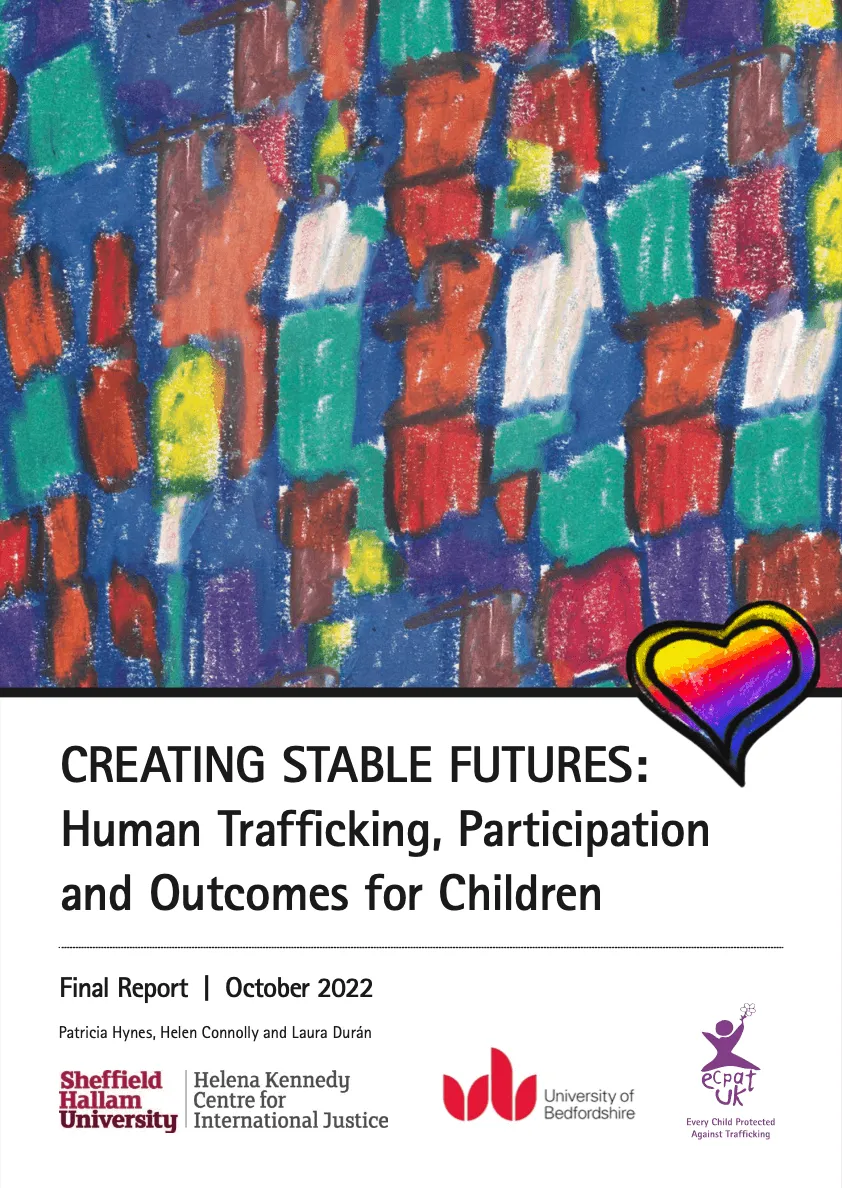
Summary of Findings
1. There is limited inclusion of children’s views in research, policy, service design or delivery. In addition, a focus on achieving positive outcomes for children and young people who have experienced or are at risk of trafficking and modern slavery is currently absent from debates in the UK. The findings of this participatory research study address these gaps with the views of 31 young people detailing outcomes that are important for them and how barriers to achieving these are structural, systemic, and discriminatory.
2. For the first time, young people have identified 25 outcomes as important and meaningful to them as set out according to the four General Principles of the United Nations Convention on the Rights of the Child – non- discrimination (Article 2), the best interests of the child (Article 3), the right to life, survival and development (Article 6) and the right to participation (Article 12). Young people highlighted being safe and feeling safe, stability and peace, having trust in professionals and systems, being believed, and listened to, freedom, equality, access to quality legal advice and interpreters as important rights-based outcomes.
3. Young people have identified what they would need to see for positive and meaningful change to happen in their lives, through a Positive Outcomes Framework which is anchored in their own words, ideas and priorities. Young people described outcomes as interconnected, difficult to disaggregate, rarely linear and interlinked with the wider contexts and structures of their lives. The outcomes identified were all seen as important for achieving a positive long-term future, with individual outcomes not confined within particular timeframes.